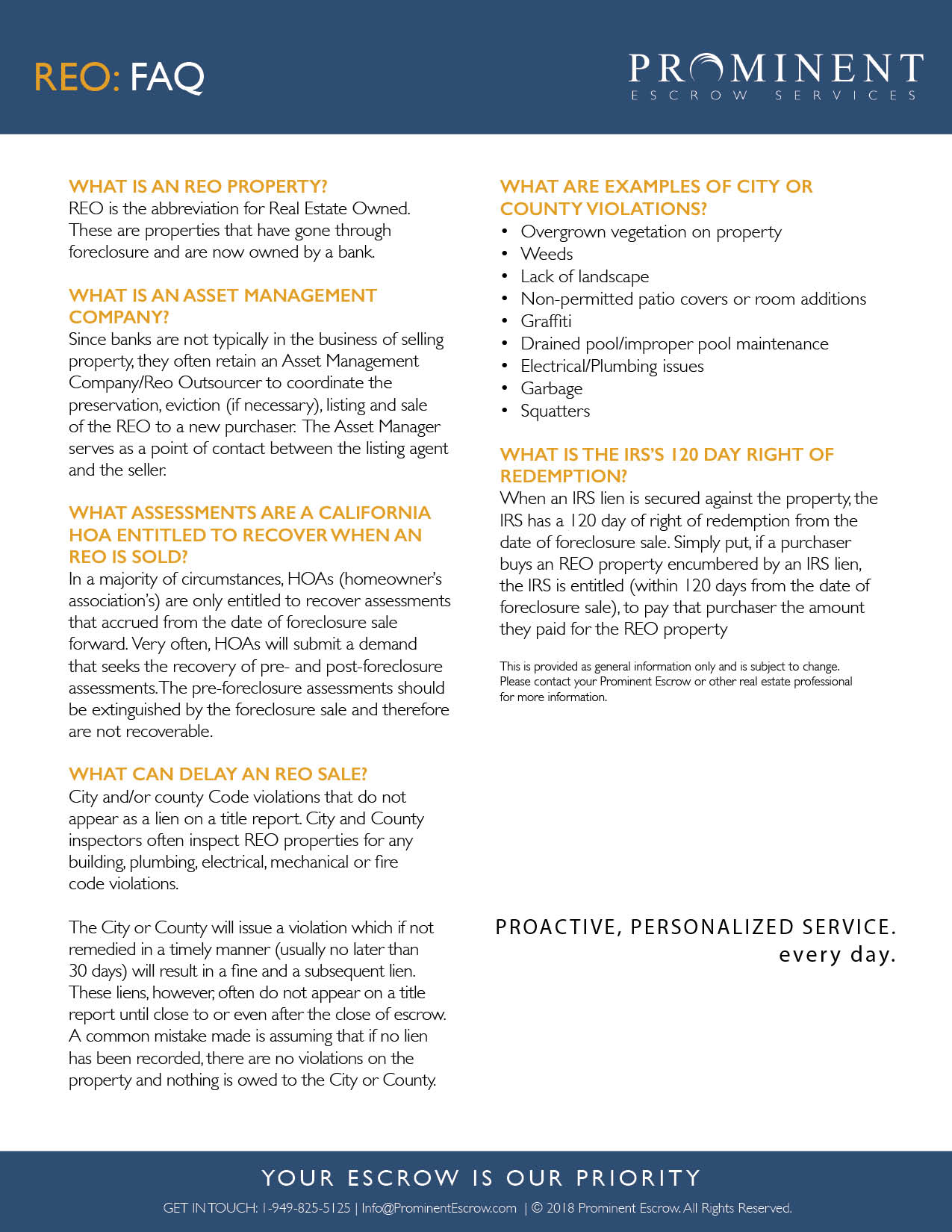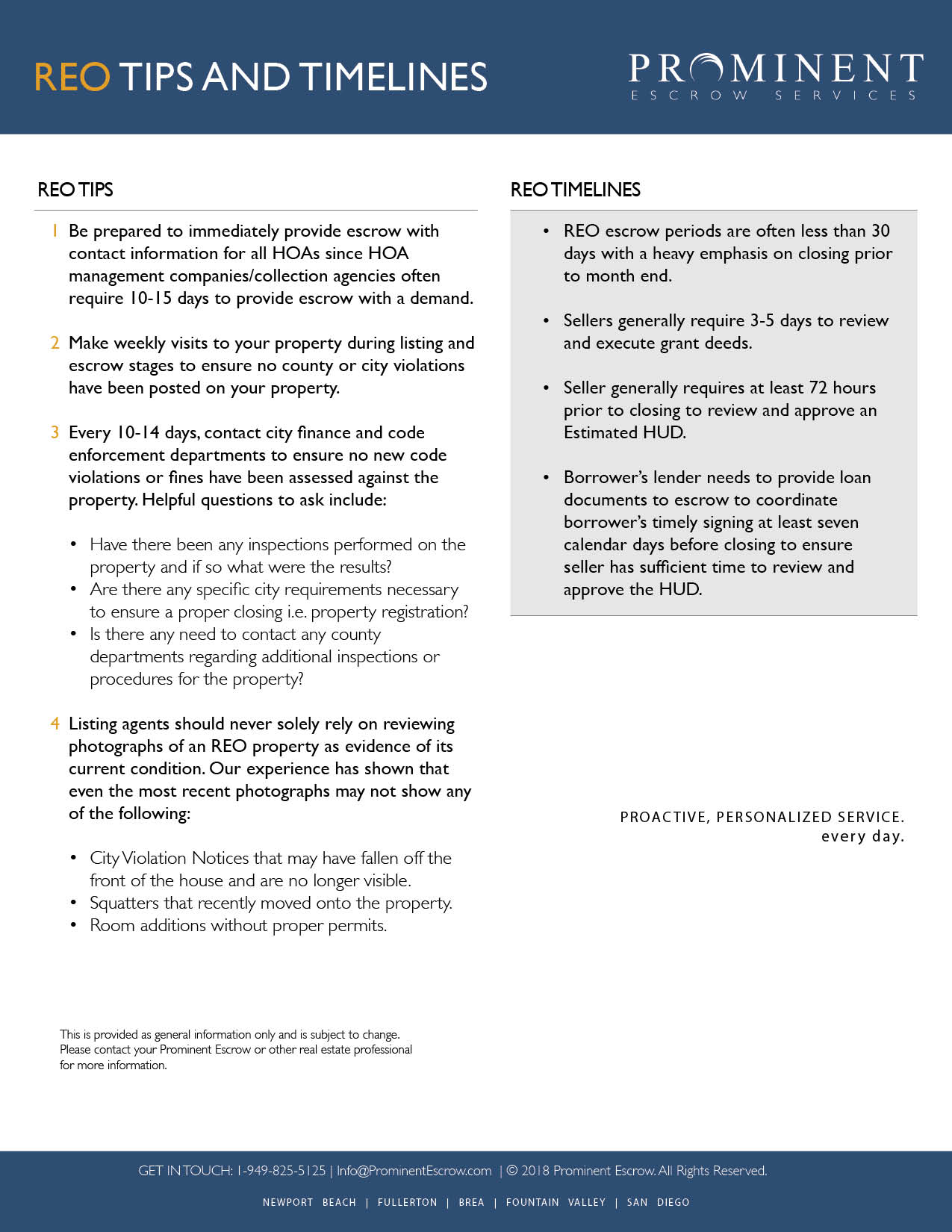REO FAQ
what is a real estate owned (REO) property?
REO is the abbreviation for Real Estate Owned. These are properties that have gone through foreclosure and are now owned by the bank.
what is an asset management company?
Since banks are not typically in the business of selling property, they often retain an Asset Management Company/Reo Outsourcer to coordinate the preservation, eviction (if necessary), listing and sale of the REO to a new purchaser. The Asset Manager serves as a point of contact between the listing agent and the seller.
what assessments are a California hoa entitled to recover when an reo is sold?
In a majority of circumstances, HOA’s (Homeowner's association's) are only entitled to recover for assessments that accrued from the date of foreclosure sale forward. Very often, HOA’s will submit a demand that seeks the recovery of pre- and post-foreclosure assessments. The pre-foreclosure assessments should be extinguished by the foreclosure sale and therefore not recoverable.
If you don't see a specific REO question answered here, LET US KNOW AND WE WILL get you MORE information.
what can delay an reo sale?
City and/or County Code Violations that do not appear as a Lien on a Title Report. City and County inspectors often inspect REO properties for any building, plumbing, electrical, mechanical or fire code violations.
The City or County will issue a violation which if not remedied in a timely manner (usually no later than 30 days) will result in a fine and a subsequent lien. These liens, however, often do not appear on a title report until close to or even after the close of escrow. A common mistake made is assuming that if no lien has been recorded, there are no violations on the property and nothing is owed to the City or County.
What are examples of city or county violations?
Overgrown vegetation on property
Weeds
Lack of landscape
Non-permitted patio covers or room additions
Graffiti
Drained pool/improper pool maintenance
Electrical/Plumbing issues
Garbage
Squatters
what is the irs's 120 day right of redemption?
When an IRS lien is secured against the property, the IRS has a 120 day of right of redemption from the date of foreclosure sale. Simply put, if a purchaser buys an REO property encumbered by an IRS lien, the IRS is entitled (within 120 days from the date of foreclosure sale), to pay that purchaser the amount they paid for the REO property.
Download our helpful information flyers on REO:
Find more informational flyers in our library.


